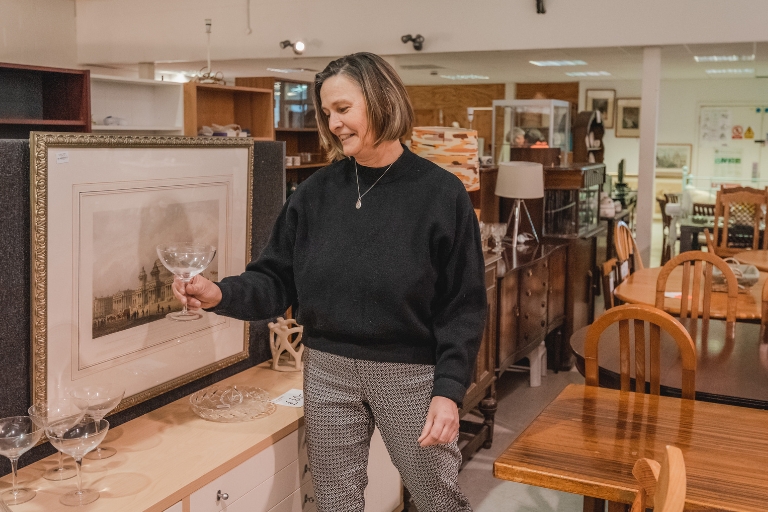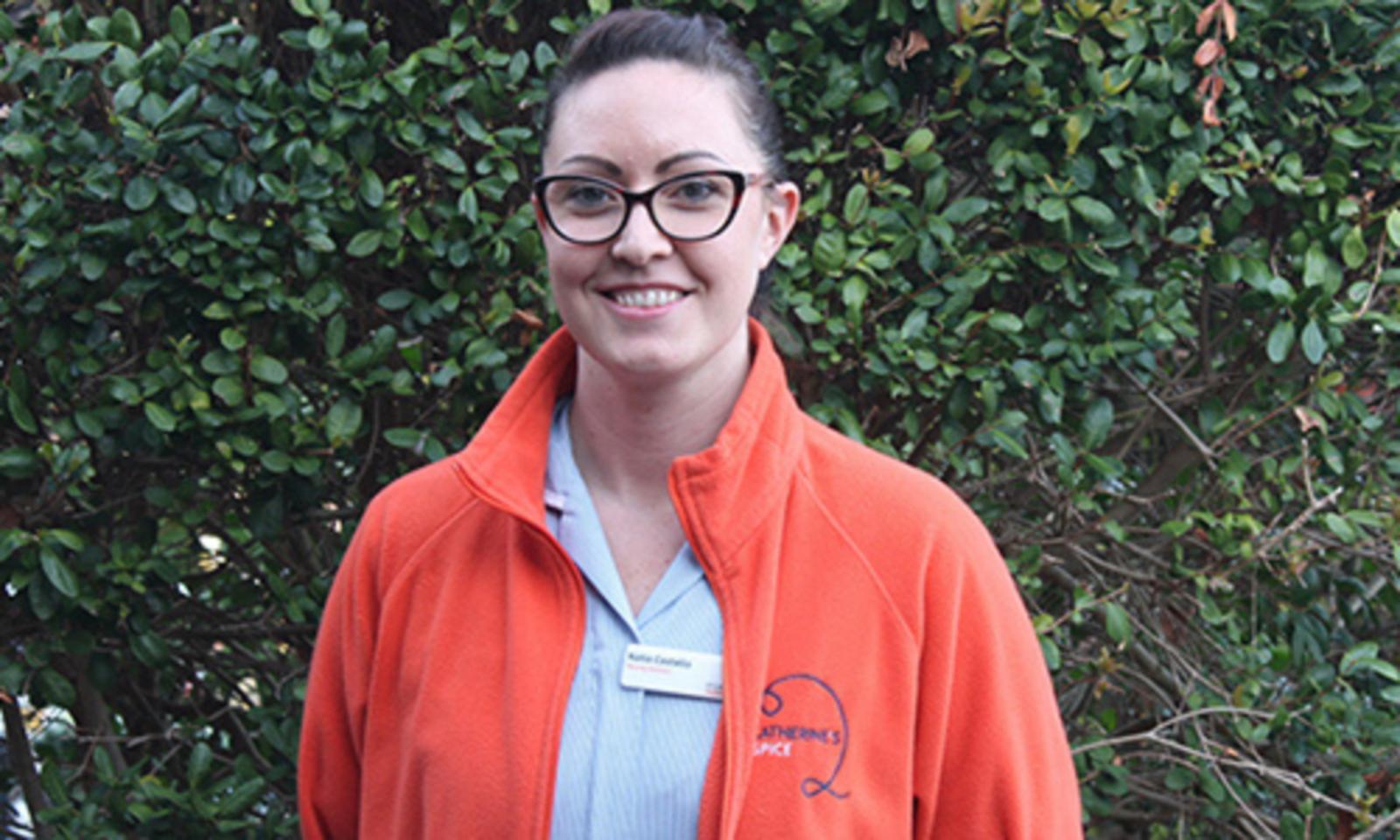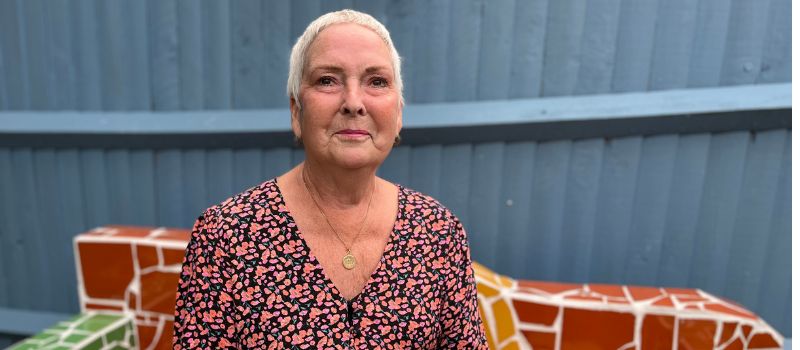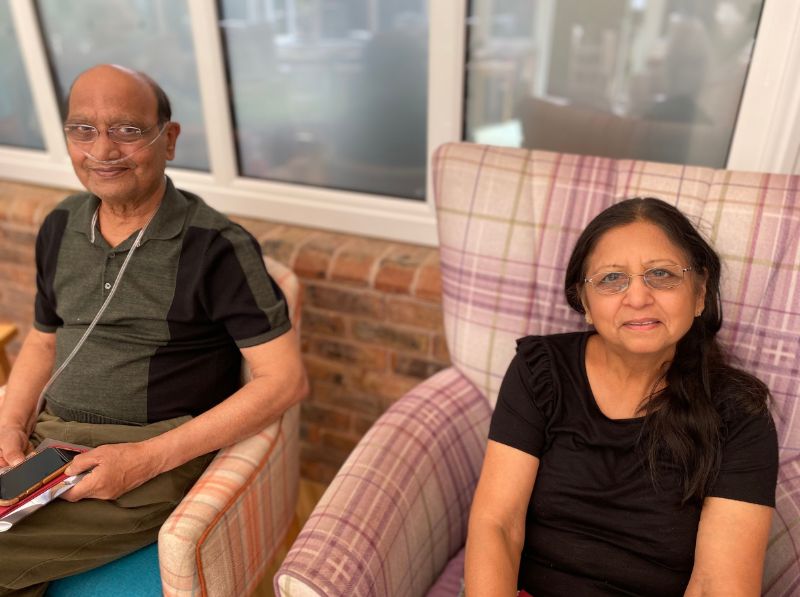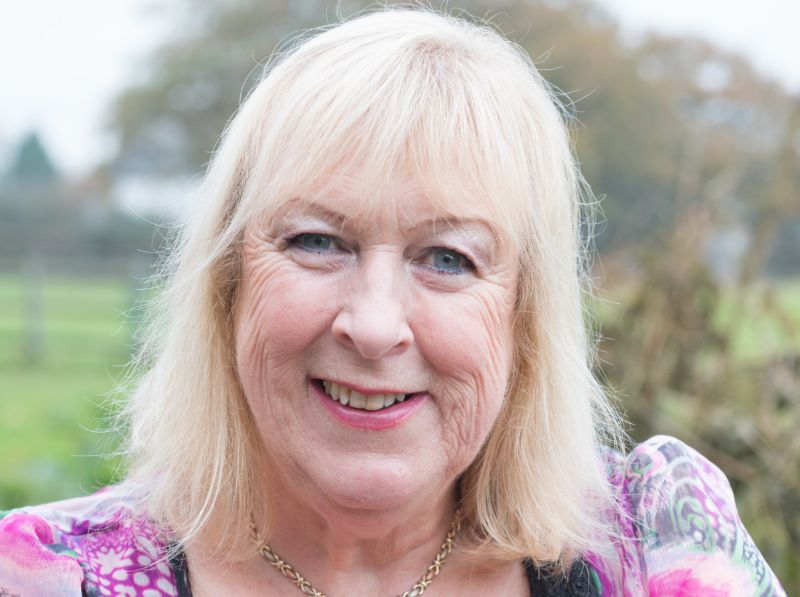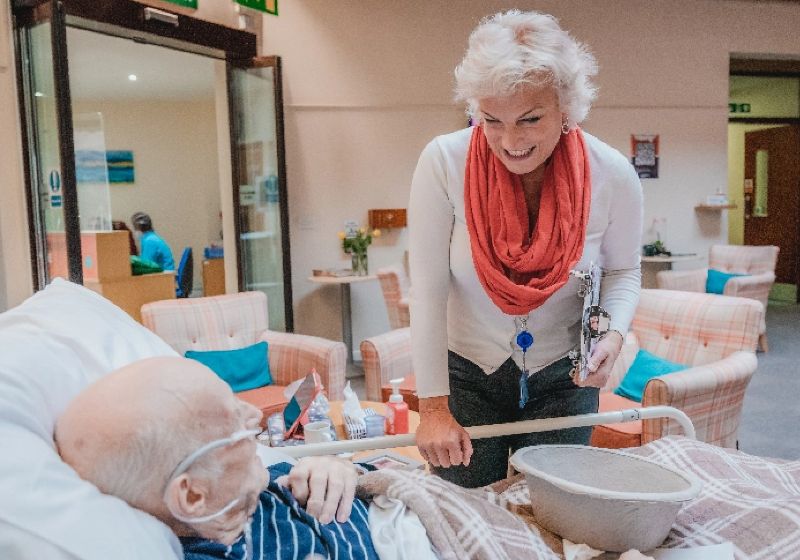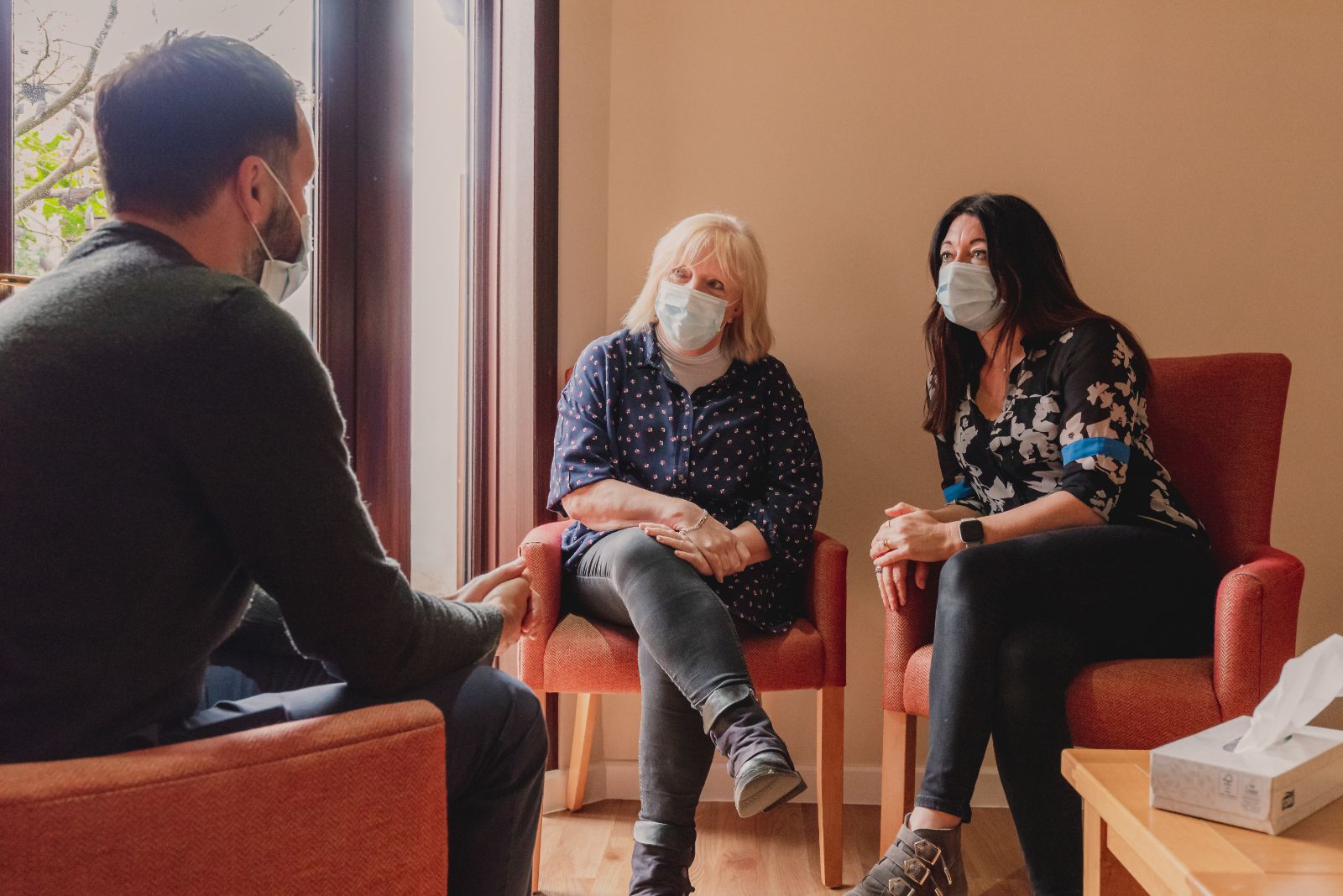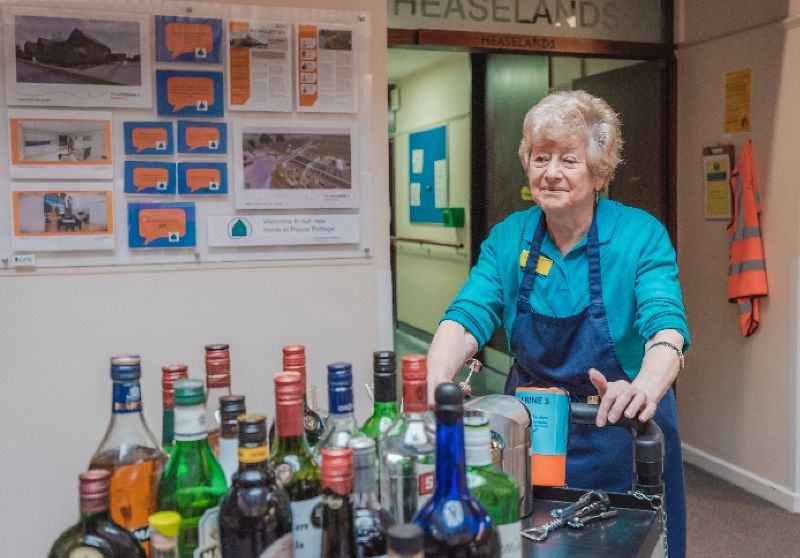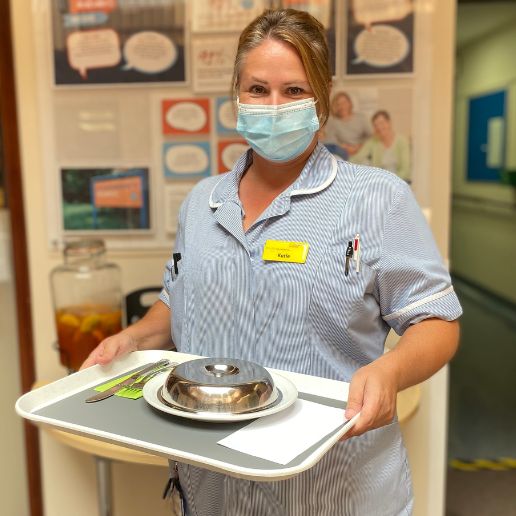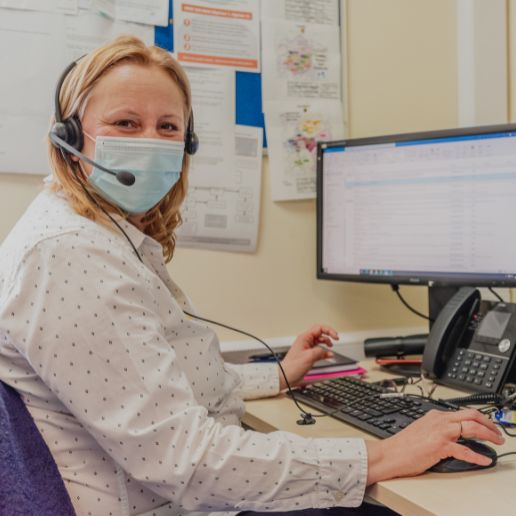Katie’s Story
“In England, around 1,300 people die every day.
About 900 of them will have wanted to die at home but less than half will do so.* Thanks to your support, my colleagues and I are able to help some people achieve their wishes.
We work across Sussex and Surrey caring for patients and their families in their own homes.
This can be anything from helping someone shower to washing someone’s hair; giving them a bath or helping them paint their nails. We’re there to listen, too. Sometimes people want to die at home, but they and their family aren’t sure how that will look or feel, so we discuss the realities.
We also offer practical support and act as a link to our other hospice services.
That could be our Patient and Family Support Team, where people can have counselling, spiritual support or get advice on things like benefits. Other people are interested in attending our Day Hospice, which gets them out of the house to mix with other people, whilst others would like help from our Therapies Team to organise equipment that will help them move around their home more easily.
Our help allows people to get their relationships back.
Often people’s families have become their carers. When my colleagues and I take over the caring it allows people to get their relationships back. They can go back to being a husband and wife, a mother and daughter or a parent to their child. It’s nice to show people that our support doesn’t just signal the end. We’re there to help them all to continue living, and to help them make the best out of their situation.
One lady we recently cared for was adamant that she wanted to die at home.
We arranged equipment for her home and our community nurses worked alongside District Nurses to provide her with co-ordinated care. My colleagues and I also visited twice a day to give her personal care. During our visits it became clear that she was struggling to come to terms with her approaching death. She was a glamorous lady so to try and make her more comfortable we decided to put on her usual make up. With the help of her daughter, we applied powder, blusher, mascara and lippy, and spritzed her with her favourite perfume.
Before we left we made sure she was comfortable in her own blankets too. As her daughter showed us out she told us it felt like she’d got her Mum back. Later that day, we received a call from the lady’s family to say she’d passed away wearing her usual face of make up and surrounded by familiar smells. To provide her with such personalised care, during what turned out to be our final visit, was an amazing thing.
Working at St Catherine’s isn’t just a job, it’s part of who I am.
And it’s all thanks to your donations. That makes my job even more special and I honestly can’t imagine doing anything else. Last year, your support meant 2,100 people in your community didn’t have to face death and dying alone. But even more local people need help. Nobody should have to die alone, in fear or in pain, and I look forward to a time when nobody has too.”
*According to figures from the Dying Matters Coalition


